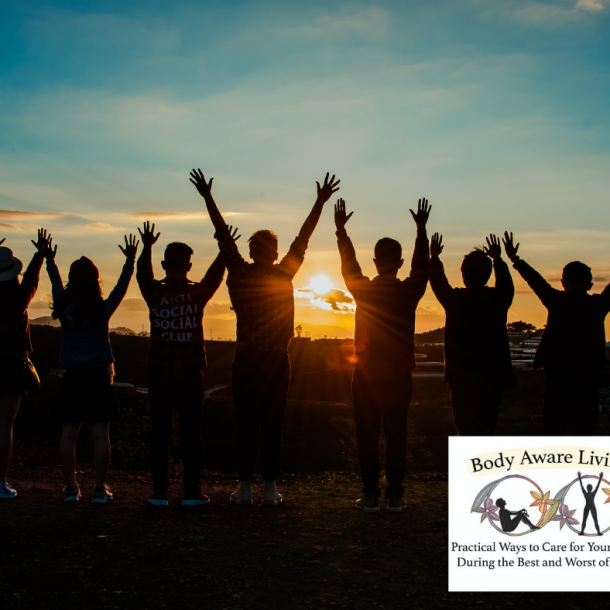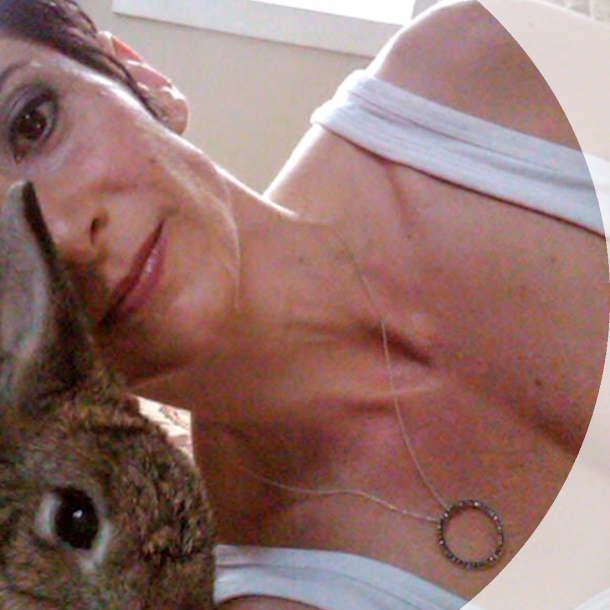
Hello, this is Margo Rose of Body Aware Grieving. And I’m going to want to do some written versions of this next topic. It’s about supporting a mourner. Two of my friends recently have mentioned that there have been sudden deaths of somebody close to them, one of my friends, his wife just died at age 31 unexpectedly, of a fall of an accident. And one of my other girlfriends has a housemate and the housemate’s boyfriend within the same similar period as this other debt. The housemate’s boyfriend had died, also.
So these two people who are my friends are immediately in this position where they’re supporting a mourner, they have this person who they’re close to, who’s going to just be really surprised and initial stages of grief. And I wanted to talk a little bit more about some of the suggestions of how to be a supportive person to a primary griever. And I think I’ve divided first into three categories.
I think the initial category, and it’s certainly within the first few days and weeks of a sudden loss, like the two that I’ve mentioned, is the person in shock. And if you’re trying to support somebody who’s in shock, and dealing with just literally probably being sort of grief-struck, some of the immediate ways of being supportive are to make sure that their physical care needs are being met. Truly something as simple as – Has this person had anything to drink? Has this person had anything to eat? Do they need rides? The person who’s in shock should absolutely not be driving themselves anywhere and you know, if they need to deal with anything logistics, phone calls, trying to make airplane reservations, trying to organize funeral or memorial, these are tasks that person’s really not capable of right then and the most support you can have for someone where you’re helping them take care of some of these logistical things that are really beyond them right at the moment.
The second stage of what I would call it, a stage of grief, those names already exist and are applied to other things but after somebody’s shocked, they’re often very overwhelmed and this could very much be within the month and year after a major loss. A person can get overwhelmed very easily. They’ve tried to resume some of their daily activities, if they’re people to work, they’ve probably tried to go back to work. The kids want to kind of get on with a daily life that makes sense to them and certainly within this second period basically where the person’s trying to go back into normal life and lifestyle when they’re still responding to grief and they’re almost more awake it’s almost more painful to not be in shock because now you’re understanding what’s happening and your feelings come back and you’re starting to just often get sadder get more easily depressed, a person might get much more irritated more easily and it’s because they’re overwhelmed they’re probably overstimulated.
Signs that a person is in this kind of stage just even small choices might really take forever. If you go to a restaurant with a person and they just can’t figure out even what kind of bread they have on a sandwich or something like that. You kind of has an indication that this person’s overwhelmed they’re just not as functional as they used to be. So at that point part of what’s upsetting to people is that their daily responsibilities have resumed when they’re not ready for them yet and so some of the ways to help a griever in this other phase are to really try to take some of their responsibilities off their hands, if you can babysit for them if they’ve got kids and help their kids sort of spending some time with somebody who’s not as upset, the kids need to be with people who are a little more kind of part of daily life and able to get excited about things and happy about things then you know this person who’s just had a major loss might not be able to produce that kind of behavior and role modeling of just what a happy moment is like the kids might need that groceries and cooking.
It can’t be overstated how important healthy nutrition is and the person might not want to cook, they might not want to be in the kitchen for themselves. And if you can find ways to do a food rotation program if you know other people who are friends with them just ways to get creative to think that just these ongoing daily things even laundry and house cleaning. If you have money and you could and maybe the person who’s going through this doesn’t have as much money if you just paid for a cleaning person or a cleaning service to come in once a month a couple of times a month and if that’s just one whole category of thing that griever doesn’t have to deal with that would be really helpful to them. The other group of things that happens a lot the first year after a loss is there’s all this administrative hassle that is just frustrating on a good day, credit card bills keep coming to the person who’s deceased dealing with insurance dealing with trying to get money out of different accounts that have been related to retirement funds different kinds of legal battles, different kinds of probate battles. All those things can be happening in this period when a person’s just so raw.
So if somebody can sort of help take over some of these administrative hassles, talking to the insurance company, talking to the different companies, phone bills need to be dealt with, just all these logistics that the primary griever ideally would not need to deal with some of that, it can be extraordinarily difficult to be referring to someone who’s passed away, who’s a huge part of your life and you’re on the phone to an insurance company or you know I was losing my mind trying to talk about my sisters of you know money with regards to ing was just making me nuts they were making it so complicated to deal with her retirement fund and releasing some of that and I just needed to get somebody else to deal with it, you just need a cool calm person to be dealing with, particularly some of the employer, employees at insurance companies and some of these bigger companies they deal with this all day long.
They didn’t know the person who died, they deal with this thing all day long, the claims, or whatever is happening so definitely help that person out and take some of those responsibilities off their plate. The next category that is hard is the period where everybody else has kind of moved on to their life a little bit, especially after the first year. If somebody’s lost their husband, their wife, their father that you know, it’ll be years if they were close to this person before they’ve really gotten all the way adjusted to this person being gone. So usually when somebody passes away immediately, everybody tries to call and write and be consoling and offer. You get a ton of offers, support, care, and attention about this important change that’s happened in your life but you get more of that right off the bat when you’re actually least capable of even comprehending it but those kinds of empty periods where everyone’s sort of gone back to whatever they need to do with their life.
Those periods can be very very lonely and the quiet of it not being a big deal anymore in a lot of people’s lives that this change has happened is hard. So some of the other ways in this sort of more distant phase after an actual loss that can be supportive would be helping remember for the next five years, if you put it in your calendar what this person’s wedding anniversary was, the birthday of the person they’ve lost and the memorial of their death if you can for minimum the next five years if you can call them to write them to contact them in advance of these dates take them out for a meal take them for a walk go camping go hiking whatever their favorite activities.
If you can stay supportive of this person long after some of the sorts of the circus of the memorial and the funeral has passed, then that’s when the person can really take in the love you’re trying to express to them and they can really appreciate that you’re helping take care of them for a long time, for the long term. So anyhow, those are just some of the ways that you can support someone who’s going through a sudden in particular grief experience. And if you have other ideas that you can add to this, I would be super glad to hear them.
That’s definitely what Body Aware Grieving is all about. It’s here for all of us to co-create together by sharing our wisdom and finding ways that we can pull our resources from what we’ve experienced. And we can all come out a little bit ahead.
So best wishes to you and love to hear your ideas. Take care, this is Margo Rose.
